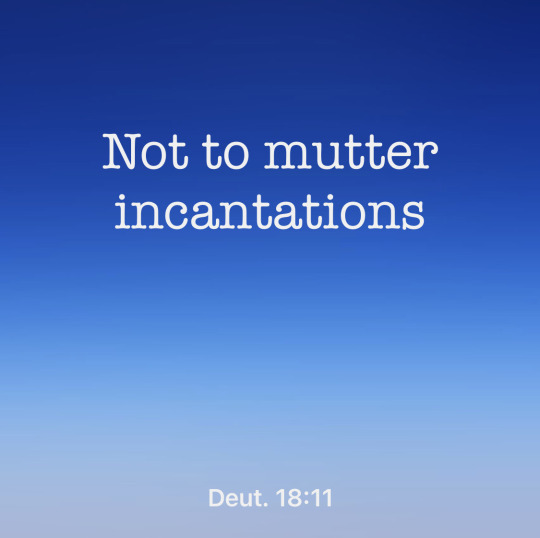#mitzvah
Explore tagged Tumblr posts
Text

283 notes
·
View notes
Text

jewish_livesmatter
I have so much anger. So much grief. The way Shiri, Ariel and Kfir were treated is beyond words. It’s unbearable. But I saw this, and it gave me a moment of something else - a reminder that even in the darkest times, we can choose to bring light. A simple act, a bracha in their memory, a mitzvah, something good - anything - to show that they were here, that their lives mattered, and that Am Yisrael lives. Let’s turn our heartbreak into something real. Take on something in their zechut. Let’s flood the world with goodness in their name. 💙🧡
130 notes
·
View notes
Text
I have a Daily Mitzvot app that tells me one new mitzvah every day at 9 a.m. and some of these are wild as hell to read first thing in the morning




1K notes
·
View notes
Text


Mo said “Totty you are such a mitzvah totty”
22 notes
·
View notes
Text
i just know hashem sent us this dog

#jumblr#mitzvah#today our partner started teaching him how to do pressure#and he just laid there on them for a while#and then after he stretched his legs came back and licked her face#he is just so sweet and good
13 notes
·
View notes
Text
I just read the sweetest and cutest thing in the newspaper! A group at the Jewish Community Center gets together and knits and crochets blankets for people in need. They've been doing this for almost 20 years.
The group of volunteers is open to anyone. You don't even need to know how to knit or crochet, as group members will quickly teach you.
They rely on donated yarn and accept anything from craft store clearance items, to single spools donated by members, to scraps donated at the front desk.
Every member has a self-appointed task based on skill level and what they find satisfying.
They donate blankets to cancer patients, veterans, and the nonprofit group Care to Knit, which distributes the blankets to homeless people and women's shelters.
The name of the group?
Knitzvah
14 notes
·
View notes
Text

Mitzvah grocery shopping Parshat Kedoshim
20 notes
·
View notes
Text
We live by faith, we bring prosperity Genesis 12:3 Read, know we bring blessing to those who help us! So contribute to my rabbi destroyed home! ״Seen If, G-d doesn’t bless you!״

11 notes
·
View notes
Text
"hurting a nice jewish girl like me?"
"that's gotta be against a mitzvah"
#referencing a recent event with a friend#quote from my best friend for life alyssa#mine#quotes#quotes to live by#freaky#mitzvah#jewish#hashem will hear about this#friend#lol#alyssa#funny
3 notes
·
View notes
Text

Today's inspiration yielded this wee bracha. Use it in good health.
Image description. A leafy green background with white lineart of ssuk repeated in the background. There are drawings of a shadowed almond blossom in top left, a gilded white California rose in top right, and a gilded tekhelet blue California rose on far left middle. Text os white serif with a black border. A heavier bordered larger text at top reads "a bracha for asking for and receiving help." Thinner bordered and slightly smaller text reads "blessed are You, Gd our god, Sovereign of Space Time, who invites us to help others fulfill the teachings of connection." Black text and logos at bottom give the handle @ the.pomegranate,witch for instagram, tumblr, and kofi, and Sahar Bareket for redbubble. Bottom right has the author's chop in red.
#art#queer art#jewish art#queer jewish art#mixed race artist#mixed race art#jewish#judaism#bracha#disabled#community#connection#mitzvah#mitzvot
3 notes
·
View notes
Text

"Holiday Mitzvah Train" by Michoel Muchnik
11 notes
·
View notes
Text

ajewishresistance
This is a Jewish resistance.
66 notes
·
View notes
Text
Menachem Bluming Muses: Judaism’s Teaching on Reincarnation
I remember at school a friend failed his end of year exams and had to repeat a grade. He stayed back for a year and was no longer in our class, but rather the class below. We all moved on but he was held back.
Some think reincarnation is like repeating a year at school. While some souls graduate to the next world after their life in this world, others are sent right back down to get things right in another life.
That is not quite how Judaism teaches that it works.
A better metaphor would be a mobile data rollover plan. The phone company gives you 15GB of data per month. Any part of that data you don't use in one month rolls over to the next month. So if you only used 14GB in May, that 14GB is gone, but the remaining 1GB comes back for you to use in June.
Your soul has multiple gigabytes of spiritual energy and divine potential. This is the power G-d has invested in you to fulfill your mission in life. You use that potential by doing good deeds, performing mitzvot. Every mitzvah activates another gig of your soul energy. You have been given an allotted number of days in this word to utilize your gigs for good.
At the end of the billing cycle, when your time comes to leave this life, the activated parts of your soul go up to a higher place, because that part of you has completed its mission on earth. But if you have unused soul potential, if you didn't activate all of the energy invested in you to do good, then that unused part of your soul comes back again in another body to finish the job.
So when someone passes away, we pray that their soul should find rest in heaven, because that's where the already used part of the soul is found. As for the unused part of the soul, it will come down for another gig.
Mendel Menachem Bluming and Rabbi AM and many other sources based on Arizal, Shaar Hagilgulim Chapter 14
3 notes
·
View notes
Text
i have the funniest mitzvah (dog) update in the world but i fear it would disrespect his privacy and destroy his dignity... unfortunate
3 notes
·
View notes
Text
Those three little bees lived because YOU cared about them. You did a mitzvah.
My dad has bees. Today, I went to his house and he showed me all the honey he had gotten from the hives. He took the lid off a 5-gallon bucket full of honey and on top of the honey there were 3 little bees, struggling. They were covered in sticky honey and drowning. I asked him if we could help them and he said he was sure they wouldn't survive. Casualties of honey collection I suppose.
I asked him again if we could at least get them out and kill them quickly, after all he was the one who taught me to put a suffering animal (or bug) out of its misery. He finally conceded and scooped the bees out of the bucket. He put them in an empty Chobani yogurt container and put the plastic container outside.
Because he had disrupted the hive with the earlier honey collection, there were bees flying all over outside.
We put the 3 little bees in the container on a bench and left them to their fate. My dad called me out a little while later to show me what was happening. These three little bees were surrounded by all their sisters (all of the bees are females) and they were cleaning the sticky nearly dead bees, helping them to get all of the honey off of their bodies. We came back a short time later and there was only one little bee left in the container. She was still being tended to by her sisters.
When it was time for me to leave, we checked one last time and all three of the bees had been cleaned off enough to fly away and the container was empty.
Those three little bees lived because they were surrounded by family and friends who would not give up on them, family and friends who refused to let them drown in their own stickiness and resolved to help until the last little bee could be set free.
Bee Sisters. Bee Peers. Bee Teammates.
We could all learn a thing or two from these bees.
Bee kind always.
58K notes
·
View notes

